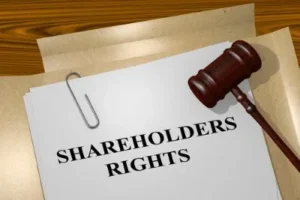Introduction to the Apple Class Action Lawsuit
The Apple class action lawsuit seeks to represent purchasers or acquirers of Apple Inc. (NASDAQ: AAPL) securities between June 10, 2024 and June 9, 2025, inclusive (the “Class Period”). Captioned Tucker v. Apple Inc., No. 25-cv-05197 (N.D. Cal.), the Apple class action lawsuit charges Apple and certain of Apple’s top current and former executives with violations of the Securities Exchange Act of 1934.
If you suffered substantial losses and wish to serve as lead plaintiff of the Apple lawsuit, or just have general questions about you rights as a shareholder, please contact attorney Timothy L. Miles of the Law Offices of Timothy L. Miles, at no cost, by calling 855/846-6529 or via e-mail at [email protected].
Lead plaintiff motions for the Apple class action lawsuit must be filed with the court no later than August 19, 2025.
Apple Inc. Company Profile
Apple Inc. (formerly Apple Computer, Inc.) is an American multinational technology company headquartered in Cupertino, California, renowned for designing, manufacturing, and marketing consumer electronics, computer software, and online services.
Key Details
- Founded: April 1, 1976, in Los Altos, California, by Steve Jobs, Steve Wozniak, and Ronald Wayne.
- Headquarters: 1 Apple Park Way, Cupertino, California.
- CEO: Tim Cook.
- Industry: Consumer electronics, software services, and online services.
- Market Cap (as of June 20, 2025): $3.01 Trillion.
- Revenue (FY24): $391.04 billion.
- Employees (FY24): 164,000.
Products & Services
- Hardware: iPhone, iPad, Mac (MacBook Air, MacBook Pro, iMac, Mac mini, Mac Studio, Mac Pro), Apple Watch, AirPods, Apple TV, Apple Vision Pro.
- Software: iOS, iPadOS, macOS, watchOS, visionOS, and tvOS.
- Services: AppleCare, iCloud, advertising, payment, and cloud services, digital content stores (App Store, Apple Arcade, Apple Fitness+, Apple News+, Apple TV+, Apple Music).
Market Leadership & Innovation
Apple has significantly impacted the technology sector through its focus on design, user experience, and innovation. Key innovations include:
- The Macintosh, one of the first computers with a graphical user interface (GUI).
- The iPod, which revolutionized the music industry.
- The iPhone, which redefined the mobile phone industry and ushered in the smartphone era.
- The iPad, which created the tablet market.
- The Apple Watch, a leader in the wearable tech sector.
- The App Store, creating an ecosystem for third-party applications.
Understanding Securities Fraud Class Action Lawsuits
Securities fraud class action lawsuits represent a significant legal mechanism for investors who have suffered financial losses due to corporate malfeasance. These lawsuits, such as the Apple lawsuit, typically arise when a company or its executives engage in deceptive practices that mislead investors about the company’s financial health or prospect.
The goal of such litigation is to hold the perpetrators accountable and secure compensation for the affected investors. Securities fraud encompasses a range of activities, including insider trading, false financial statements, and misleading disclosures, all of which can severely impact market integrity and investor confidence.

In a class action context, a group of investors collectively brings the lawsuit against the defendant, which could be a corporation or its executives. This collective approach is particularly powerful in the securities realm because it allows individual investors, who might not have the resources to pursue litigation on their own, to band together and seek justice.
The class action mechanism ensures that the legal process is efficient and that the interests of all affected investors are represented.
The complexity of securities fraud class action lawsuits requires plaintiffs to navigate a labyrinth of legal standards and procedural hurdles. One of the most significant challenges is surviving a motion to dismiss, a legal maneuver by the defendants to have the case thrown out before it reaches trial.
Understanding the nuances of these lawsuits is crucial for any stakeholder involved, as it sets the stage for the strategic decisions that will follow. In the case of the Apple class action lawsuit, these elements come into sharp focus, highlighting the importance of a well-crafted legal strategy.
Overview of the Apple Class Action Lawsuit
The Apple class action lawsuit is a securities class action lawsuit that centers on allegations of misleading investors through the provision of inaccurate or incomplete information regarding the company’s financial status and operations. Such allegations, if proven true, could result in significant legal and financial consequences for Apple. You need to grasp the magnitude of these claims and their potential impact on the company’s future.

Understanding the Apple lawsuit requires analyzing the details of the allegations. Investors claim that Apple’s disclosures were not as transparent as they should have been, leading to financial losses once the truth was revealed. Legal experts are examining whether there was a deliberate attempt to mislead stakeholders, which could lead to punitive measures.
For anyone involved in investing, the Apple class action lawsuit serves as a stark reminder of the importance of due diligence and the risks associated with corporate investments. As you navigate through the nuances of this case, consider how transparency and accountability play pivotal roles in maintaining investor trust and confidence in the market.
Allegations in the Apple Class Action Lawsuit
The Apple class action lawsuit alleges that defendants throughout the Class Period made false and/or misleading statements and/or failed to disclose that:
- Apple misstated the time it would take to integrate the advanced artificial intelligence (“AI”)-based Siri features into its devices;
- Accordingly, it was highly unlikely that these features would be available for the iPhone 16;
- The lack of such advanced AI-based features would hurt iPhone 16 sales; and
- As a result, Apple’s business and/or financial prospects were overstated.
TheApple class action lawsuit further alleges that on March 7, 2025, Apple announced it was indefinitely delaying promised updates to its Siri digital assistant. The Apple class action lawsuit alleges that on this news, the price of Apple stock fell.
Then, on March 12, 2025, the Apple class action lawsuit further alleges that Morgan Stanley published a report in which analyst Erik Woodring lowered his price target on Apple from $275 to $252, asserting that the delay in introducing advanced Siri features would impact iPhone upgrade cycles throughout 2025 and 2026, and presenting evidence that roughly 50% of iPhone owners who did not upgrade to the iPhone 16 attributed their decision to such delays.
On this news, the price of Apple stock fell further, according to the complaint.
Thereafter, the Apple class action lawsuit alleges that on April 3, 2025, the Wall Street Journal published an article titled “Apple and Amazon Promised Us Revolutionary AI. We’re Still Waiting,” which stated, in relevant part, that “[w]ith ‘more personal’ Siri . . . , the tech giant[] marketed features [it] ha[s] yet to deliver,” and suggested that while “this is challenging technology and the cost of getting it wrong is devastatingly high, especially for [a] compan[y] like Apple . . . that must build trust with customers,” “the same responsibility applies to marketing: They shouldn’t announce products until they’re sure they can deliver them.”
On this news, the price of Apple stock fell more than 7%, according to the Apple lawsuit.
Finally, on June 9, 2025, Apple hosted its Worldwide Developer Conference (“WWDC”), almost one year to the day after first announcing the suite of supposedly forthcoming Apple Intelligence features at the 2024 WWDC, and Apple failed to announce any new updates regarding advanced Siri features, according to the complaint.
On this news, the price of Apple stock fell further, according to the Apple lawsuit.
The Lead Plaintiff Process Under the PSLRA and Its Impact on the Apple Class Action Lawsuit
The lead plaintiff process under the Private Securities Litigation Reform Act of 1995 (PSLRA) is a crucial mechanism in securities class action lawsuits. Established to enhance the efficiency and fairness of class action litigation, the PSLRA aims to curb frivolous lawsuits and ensure that the most capable plaintiffs oversee the proceedings.
When a securities class action lawsuit, such as an Apple class action lawsuit, is filed, the court must appoint a lead plaintiff who will act on behalf of all class members. This individual or entity typically has the largest financial interest in the case and is deemed most capable of representing the class’s interests.

The process begins when a securities class action is initiated, at which point a notice is published to inform potential class members of the lawsuit and their right to seek appointment as lead plaintiff. Interested parties must file a motion with the court within 60 days from the notice date, expressing their desire to be considered for this role. The court then reviews these motions, evaluating factors such as the size of the applicant’s financial loss, their understanding of the litigation process, and their ability to represent the class effectively.
In high-profile cases like an Apple class action lawsuit, multiple plaintiffs often vie for the lead plaintiff position. The court’s selection aims to balance experience, resources, and commitment to ensuring a fair and just outcome for all class members. Once appointed, the lead plaintiff assumes several responsibilities, including selecting and retaining counsel, overseeing litigation strategy, and making critical decisions throughout the case.
The PSLRA’s lead plaintiff provision addresses concerns about lawyer-driven lawsuits by empowering investors with significant stakes in the outcome. It helps align the interests of the lead plaintiff with those of the entire class, promoting more diligent and effective management of the litigation.
By ensuring that the most qualified individuals or entities guide complex securities class actions like an Apple class action lawsuit, the PSLRA fosters greater accountability and enhances the likelihood of achieving fair settlements or judgments for affected investors.
The Lead Plaintiff Deadline in the Apple Class Action Lawsuit
Lead plaintiff motions for the Apple class action lawsuit must be filed with the court no later than August 19, 2025. When a securities class action is filed:
- The person who files the first complaint is required to publish a notice announcing the filing.
- Anyone who wants to be the lead plaintiff on behalf of the class must thereafter file a motion to be appointed as lead plaintiff(s) no later than 60 days after the notice was published.
The Benefits of Serving as a Lead Plaintiff in the Apple Lawsuit
- Negotiating more competitive attorney fees and reducing litigation costs.
- Managing the litigation by overseeing the progress of the case and reviewing important filings.
- Participating in mediation and settlement discussions.
- Having a voice in decision-making processes regarding the settlement.
- No financial risk, as lead counsel covers all costs and expenses and are paid only if they secure a settlement or judgment recovery for the class
- Potentially enjoying long-term benefits from governance reform resulting from the litigation.
The Responsibilities the Lead Plaintiff Will Have in the Apple Lawsuit
- Selecting, monitoring, and overseeing Lead Counsel.
- Reviewing and commenting on court filings on behalf of the class.
- Discussing litigation strategies with the Lead Counsel.
- Attending depositions (if necessary) and giving a deposition.
- Attending hearings (if necessary).
- Participating in mediation and the trial (if necessary).
- Provide input on any decision concerning the settlement of the securities class action.
The Eligibility Criteria for Lead Plaintiff Appointment in the Apple Class Action Lawsuit
To be eligible for appointment as the lead plaintiff in the Apple class action lawsuit, an investor must meet the following criteria:
- Securities Acquisition: The investor must have purchased or acquired Apple Inc. (NASDAQ: AAPL) securities between June 10, 2024 and June 9, 2025.
- Financial Losses: The investor must have suffered financial losses as a direct result of the alleged securities fraud perpetrated by Apple Inc. and its executives.
- Typicality and Adequacy: The investor’s legal claims must be typical of those asserted on behalf of the class, and they must demonstrate their ability to adequately represent the interests of the entire class through experience, resources, and the absence of conflicts of interest.
It is crucial to note that both domestic and international investors who meet these criteria are eligible to seek appointment as the lead plaintiff in the class action lawsuit, as courts have consistently recognized the rights of non-U.S. investors in securities class actions.
The Legal Requirements for Prevailing in the Apple Lawsuit
- Material Misrepresentation or Omission
- Scienter
- Connection to Securities Transaction
- Reliance
- Economic Loss
- Loss Causation
Opting-out of the Apple Lawsuit
Opting out of a class action lawsuit involves an individual choosing not to participate as a member of the class. In the context of the Apple class action lawsuit, this means that a shareholder or other affected party would decide to pursue their own separate legal action rather than be part of the collective lawsuit.
Opting out can be a strategic decision based on various factors such as the desire for greater control over the litigation process, potential for a larger individual settlement, or differing personal circumstances that may not align with the class’s claims.
When an individual opts out of a class action, they retain the right to file their own lawsuit against the defendant, in this case, Vestis. This decision must be made within a specified timeframe and in accordance with the procedures outlined by the court overseeing the class action.

It is essential for individuals considering this option to thoroughly evaluate their legal standing and consult with an attorney who can provide guidance tailored to their specific situation.
The Apple class action lawsuit, like many class actions, seeks to address grievances shared by a large group of plaintiffs who have been similarly affected by the company’s actions. While participating in a class action can streamline the litigation process and reduce individual legal costs, opting out allows for a more customized approach to seeking justice and compensation.
This decision should be made carefully, weighing the potential benefits and drawbacks in light of one’s unique circumstances and goals. If you have substantial losses, you may want to consider opting-out, but remember if you do, you will not be able to participate in any settlement in the Apple lawsuit.
Tips for Investors to Take to Protect their Interest in the Apple Lawsuit
Gathering and Organizing Relevant Evidence
In a securities class action lawsuit just like the Apple class action lawsuit, evidence is the cornerstone of building a compelling case. For shareholders, gathering and organizing relevant evidence is a critical step in substantiating claims of corporate misconduct. The evidence typically revolves around documents and communications that demonstrate the company’s misrepresentations or omissions, as well as the financial harm suffered by shareholders. Below are some steps you should take:
- Compile all financial statements, press releases, analyst reports, emails, and any internal documents that shed light on the alleged wrongdoing alleged in the Apple class action lawsuit.
- Meticulously document your investment history with the Apple, including dates of stock purchases and sales, quantities, and prices. This information is crucial for calculating damages and proving that the shareholder suffered financial losses as a result of the company’s actions.
- Maintaining detailed records not only strengthens the individual’s position in the lawsuit but also contributes to the overall strength of the Apple lawsuit, by providing a clear picture of the impact on shareholders.
- Organizing this evidence in a systematic manner is equally important. Shareholders can create a comprehensive file of all relevant documents, categorized by type and date, to facilitate easy retrieval and review by legal counsel.
This preparation not only aids in the efficient prosecution of the Apple lawsuit, but also demonstrates the shareholder’s commitment and readiness to actively participate in the litigation process.
By thoroughly gathering and organizing evidence, shareholders lay a solid foundation for holding corporations accountable and seeking redress for their financial injuries.
Staying Informed: Monitoring Case Developments
In the fast-paced environment of securities class action lawsuits, staying informed about case developments is crucial for shareholders. As the Apple class action lawsuit, moves forward, new information and events can significantly impact the strategy and potential outcomes. Apple shareholders must actively monitor key milestones, such as court rulings, settlement negotiations, and any changes in the legal landscape. Keeping abreast of these developments ensures that shareholders are well-positioned to make timely and informed decisions.
Effective communication with legal counsel is essential for staying updated on case developments. Attorneys provide regular updates and analyses of the ongoing proceedings, helping shareholders understand the implications of each development. This information is vital for assessing the potential risks and benefits of different courses of action, such as whether to accept a settlement offer or continue pursuing the Apple lawsuit.

By maintaining open lines of communication with their legal team, shareholders can remain engaged and proactive throughout the litigation process.
Shareholders can also benefit from following news sources and industry reports related to the Apple class action lawsuit and the defendant company. These sources can provide valuable insights into broader market trends, regulatory changes, and public perceptions that may influence the case. By staying informed, shareholders can better anticipate shifts in the legal and financial landscape, enabling them to adapt their strategies and protect their interests effectively.
In securities class actions, knowledge is power, and staying informed is a key component of successful participation.
Frequently Asked Questions About the Apple Lawsuit
What initiated the Apple lawsuit?
The lawsuit was initiated by investors alleging that Apple provided misleading information regarding its financial health and operations, resulting in financial losses.
How can I join the Apple lawsuit?
If you purchased shares during the class period and suffered a loss, then you are automatically a member of the class and do not need to do anything at this point unless you are considering moving for lead plaintiff.
What are the potential benefits of an Apple lawsuit?
Class action lawsuits allow individual investors to collectively seek justice and compensation, which might be challenging to pursue individually. They also promote corporate accountability.
How long will the Apple lawsuit take to resolve?
The duration of class action lawsuits can vary significantly, depending on the complexity of the case, legal strategies, and whether settlements are reached. It could take several months to years.
Contact Timothy L. Miles Today About an Apple Class Action Lawsuit
If you suffered substantial losses and wish to serve as lead plaintiff of the Apple class action lawsuit, or just have general questions about you rights as a shareholder, please contact attorney Timothy L. Miles of the Law Offices of Timothy L. Miles, at no cost, by calling 855/846-6529 or via e-mail at [email protected]. (24/7/365).
Timothy L. Miles, Esq.
Law Offices of Timothy L. Miles
Tapestry at Brentwood Town Center
300 Centerview Dr. #247
Mailbox #1091
Brentwood,TN 37027
Phone: (855) Tim-MLaw (855-846-6529)
Email: [email protected]
Website: www.classactionlawyertn.com
Facebook Linkedin Pinterest youtube



